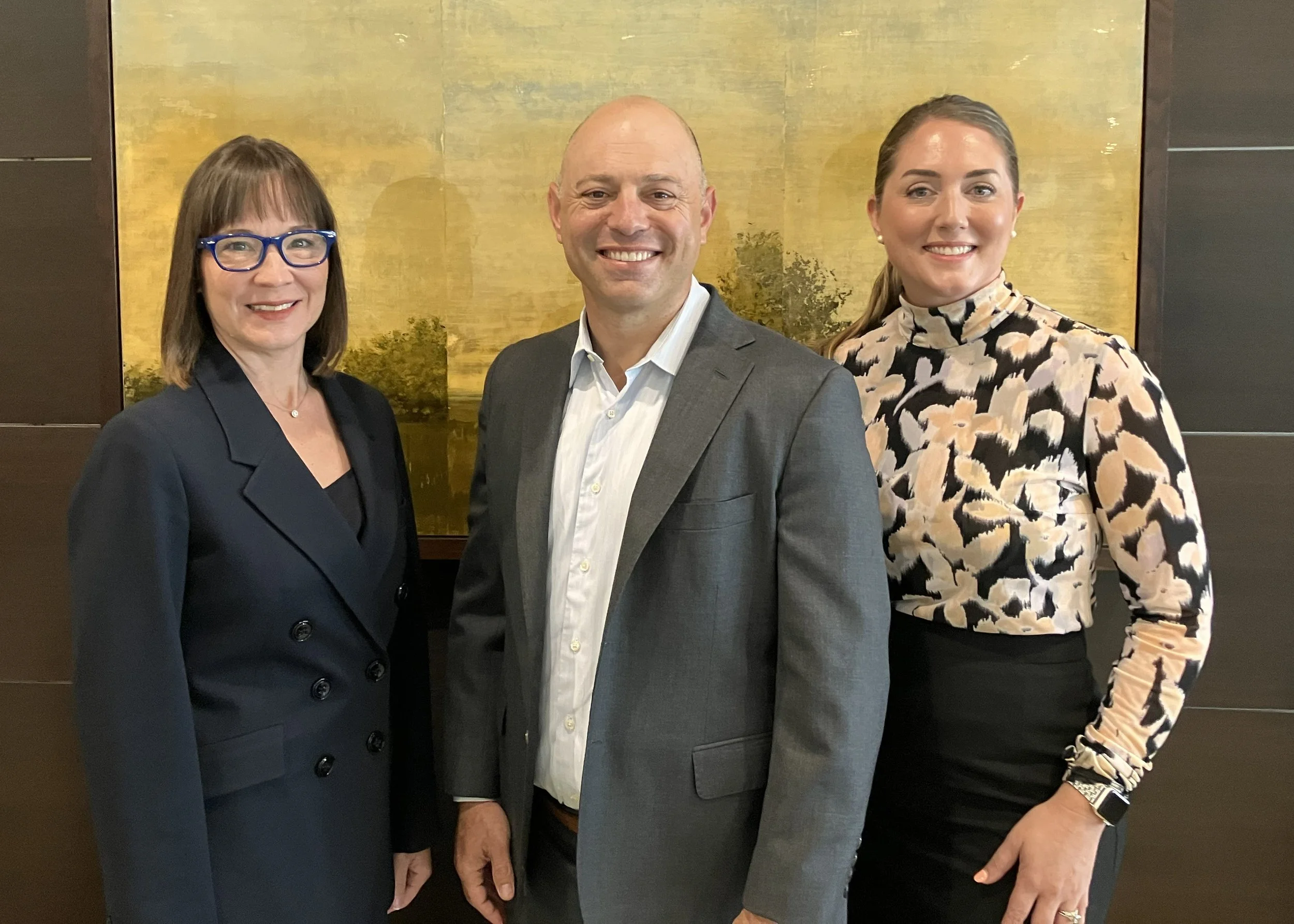communication
"TO COIN A PHRASE" Blog
News and Views from Ferguson Wellman and West Bearing Investments
Categories
weekly market makers
Our Friday recap of market activity and economic news view →
news worth noting
Ferguson Wellman and West Bearing Investments in the news and our company announcements view →
resources worth routing
Timely updates and resources from outside sources view →
our investment views
Perspective and recent allocation moves from our investment team view →
wealth management insights
Holistic planning information for individuals and families view →
This week, the Congressional Budget Office released its estimate of the federal government’s fiscal year 2025 budget deficit. Nine months ago, there were high expectations that policymakers would move to reduce the deficit spending we’ve seen over the last 25 years.
On Wednesday, Congress failed to reach an agreement to fund the government, resulting in the first shutdown since 2018. While news headlines are filled with political drama, the financial markets have told a different story.
As we approach the close of 2025, we’re reminded of a significant milestone—welcoming our first Octavia Group client five years ago. During a recent strategy meeting, our team reflected on the evolution of our family office, sharing insights into our growth, expanding services, and future plans—all with the aim of consistently exceeding our clients’ expectations.
The tax landscape for individuals has shifted once again with the passage of OBBBA. While
the legislation includes enhanced deductions and targeted tax relief, it also introduces several new income-based limitations that subtly yet significantly reshape tax efficiency.
The tax act, adopted on July 4 of this year, extended or made permanent many personal income tax provisions and included significant changes for optimizing charitable giving strategies. The key changes to charitable income tax deductions for individuals that become effective in 2026 are highlighted below but must be considered in the broader context of other tax opportunities.
As we enter the final stretch of the year, it’s a great time to set aside a few hours to review your financial picture and position yourself for a confident start to the new year.
We’re caught in a strange economic limbo with the U.S. employment market. Large-scale layoffs and a climb in the unemployment rate that signals a recession has not materialized; but the robust hiring that signals a healthy economy has vanished. The result is a labor market completely stuck in neutral, and the official numbers we’ve relied on for decades are looking shakier than ever.
Over the course of the third quarter, the focus among investors, economists and the Fed itself shifted from tariff policy to jobs. We’ve arrived at a dynamic in the labor market that can best be described as a “stalemate.” Both hiring and firing rates sit at low levels. Businesses, uncertain about the future, are holding onto the employees they have, while simultaneously hesitating to bring on new staff. Top of mind is whether the frozen labor market will thaw through a resumption of hiring or whether we are in the early stages of an eventual rise in the rate of unemployment.
The chatter is unmistakable. From trading floors to investment committee meetings, "bubble" has officially entered the market dialogue. The latest Schwab survey reveals that 57% of professional traders now view the market as overvalued. Meanwhile, prominent economists are drawing comparisons to the dot-com era, with Apollo Global Management's chief economist Torsten Slok noting that today's top stocks are “more overvalued” then their counterparts were in the 1990s.
For the first time in nine months, the Federal Reserve approved a quarter-point interest rate cut on Wednesday, bringing the Fed funds target range between 4.0 and 4.25%. The rate cut was widely expected, resulting in minimal market reaction after the announcement—unsurprising, given the strong rally in stocks and bonds leading up to this week.
The passage of the SECURE Act in 2019 and SECURE 2.0 Act in 2022 ushered in sweeping changes for taxpayers regarding retirement account distributions. These changes, including a significant modification to how certain designated beneficiaries must distribute inherited retirement accounts, are crucial for anyone possessing or inheriting a retirement account to understand.
As part of the modernization of the federal government and with a goal of improving efficiency and reducing fraud, the president signed an executive order on March 25 to phase out the use of paper checks by the U.S. government.
This week has left many wondering how all the puzzle pieces fit together. On one hand, we have a clear weakening in the labor market, yet the stock market continues to soar to new all-time highs. Toss in some mixed inflation reports and that may leave some questioning if a few of the puzzle pieces are missing from the box.
PORTLAND, Ore.—(Businesswire)—Homeowners in areas around the U.S. continue to face the threat of natural disasters as wildfire, flood, and hurricane seasons converge in late summer and fall months. Beyond immediate safety concerns, the financial aftermath of natural disasters can be devastating.
Just as the three most important considerations for real estate investors are “Location, Location, Location,” the three things both markets and policymakers were focused on this week were “Jobs, Jobs, and more Jobs” … or fewer jobs as it turned out, with today’s report from the Bureau of Labor Statistics (BLS).
Josh Frankel, CFP®, was on KOIN AM Extra's Wallet Wednesday to share some tips on how to best teach kids about money.
The Federal Reserve’s independence is a cornerstone of U.S. financial stability. It underpins confidence in Treasury markets, the world’s deepest and most liquid, and supports the U.S. dollar’s role as the global reserve currency. Recent actions and statements from the White House, however, have stirred a debate over that independence and prompted a reasonable investor question: Will markets react to politics, or will they continue to focus on the data?
Each year, central bankers, finance ministers and academics gather in Jackson Hole, Wyoming, for an economic policy symposium (or boondoggle, whichever you prefer).
Umbrella insurance is one of the most commonly misunderstood and overlooked types of insurance coverage available. This form of liability coverage sits on top of your existing auto, homeowners or watercraft policies and is designed as an additional layer of protection from large claims that exceed your standard policy limits.
The word unprecedented has appeared often in headlines this year — and for good reason. Breaking news has been in no short supply, and this week brought another wave of significant government and business activity.
To recognize this milestone anniversary, Ferguson Wellman is launching a new initiative to promote more financial education and literacy.
Over the last week, the Bureau of Labor Statistic (BLS) released several data points highlighting some weakness in the jobs market.
This week delivered an unprecedented convergence of critical market-moving events that tested investors' ability to parse signal from noise.
Mary Lago, CFP®, CTFAM was on KOIN AM Extra's Wallet Wednesday to discuss disaster preparedness and preparing your finances.
In this quarter’s Wealth Management Insights video, "Navigating the Retirement Shift," Samantha Pahlow, CTFA, AWMA®, discusses the multifaceted journey of retirement and highlights the need for thoughtful preparation to ensure a fulfilling retirement.
Despite a somewhat quiet week from an economic data perspective, capital markets were anything but. A steady drip of news about home sales, second-quarter company earnings updates and new trade deals provided investors with plenty to digest ahead of next week’s much-busier economic news cycle.
Congress recently approved, and the President signed, new legislation affecting taxes, spending cuts and other policy changes that are particularly relevant to financial planning.
This week's economic data painted a picture of an economy caught between competing forces, with implications that are keeping Fed officials on edge. While June's CPI report showed inflation ticking up to 2.7% annually from May's 2.4%, there were encouraging signs beneath the surface, with vehicle prices falling during the month and shelter prices rising at their slowest pace in years.
For many people, serving on a nonprofit board is a rewarding experience. It’s a chance to lend expertise, guide strategy and contribute meaningfully to a cause they believe in.




















